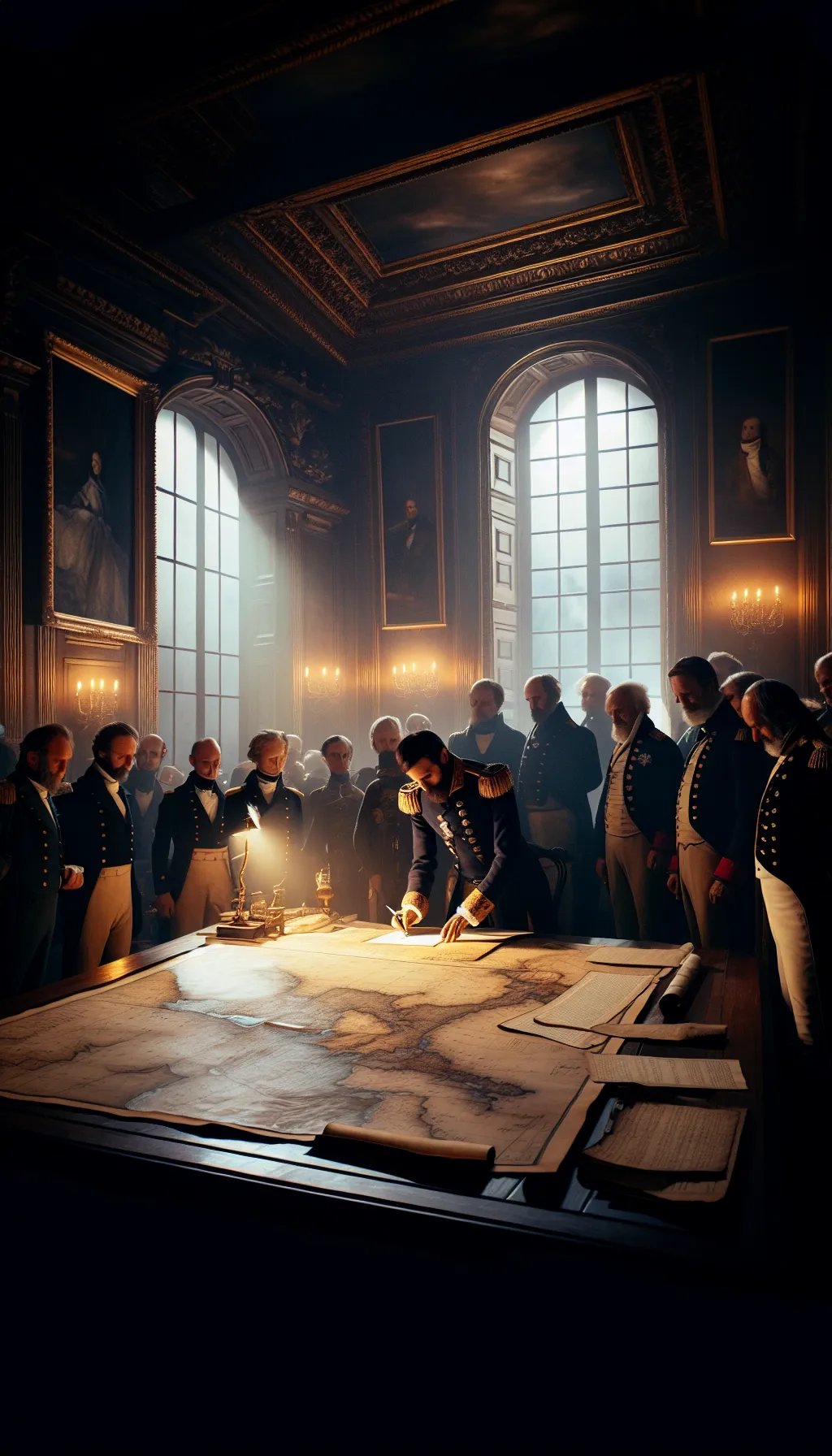France – The Bold Gamble: The Louisiana Purchase of 1803
TLDR;
- Event: On April 30, 1803, the United States signed the Louisiana Purchase Treaty with France, acquiring approximately 827,000 square miles (2.14 million square kilometers) of land west of the Mississippi River for $15 million.
- Negotiation: Initially seeking only New Orleans, U.S. negotiators were surprised by Napoleon’s offer to sell the entire Louisiana Territory, motivated by France’s financial needs and setbacks in Haiti.
- Controversy: President Thomas Jefferson faced criticism for the purchase, as it challenged his strict interpretation of the Constitution, but he justified it under the treaty-making power.
- Impact: The deal doubled the size of the U.S., facilitated westward expansion, and set the stage for the Lewis and Clark expedition, significantly shaping the nation’s future.
–
Story
In Paris, on April 30th, 1803, a quill scratched across parchment, sealing a deal that would forever alter the landscape of a young nation. The Louisiana Purchase Treaty was signed, and with it, the United States doubled in size overnight.

The early 19th century was a time of ambition and expansion for the United States. President Thomas Jefferson, a visionary with an eye on the future, saw the vast lands west of the Mississippi River as the key to the nation’s prosperity. But the land was under French control, and Napoleon Bonaparte, facing setbacks in Saint-Domingue (Haiti) and embroiled in European conflicts, was in desperate need of funds.
In a bold move, Jefferson dispatched James Monroe and Robert R. Livingston to negotiate the purchase of New Orleans, a critical port for American trade. To their astonishment, Napoleon offered the entire Louisiana territory—an expanse of 827,000 square miles—for $15 million, with $11.25 million allocated for the land itself and the remainder covering debts owed by France to U.S. citizens.
The decision was not without controversy. Critics argued that the Constitution did not explicitly grant the President the power to acquire new land. Yet, Jefferson, while a strict constitutionalist, justified the purchase under the treaty-making power (Article II, Section 2 of the Constitution), recognizing the opportunity as too great to pass up.
The signing of the treaty was a turning point, propelling the United States into a new era of exploration and growth. It paved the way for westward expansion, the Lewis and Clark expedition—already in planning but accelerated by the purchase—and the eventual emergence of the United States as a continental power.
The Louisiana Purchase was more than a land deal; it was a bold gamble that paid off, shaping the destiny of a nation.
–
| Would a different decision by Jefferson have changed the course of American history? |